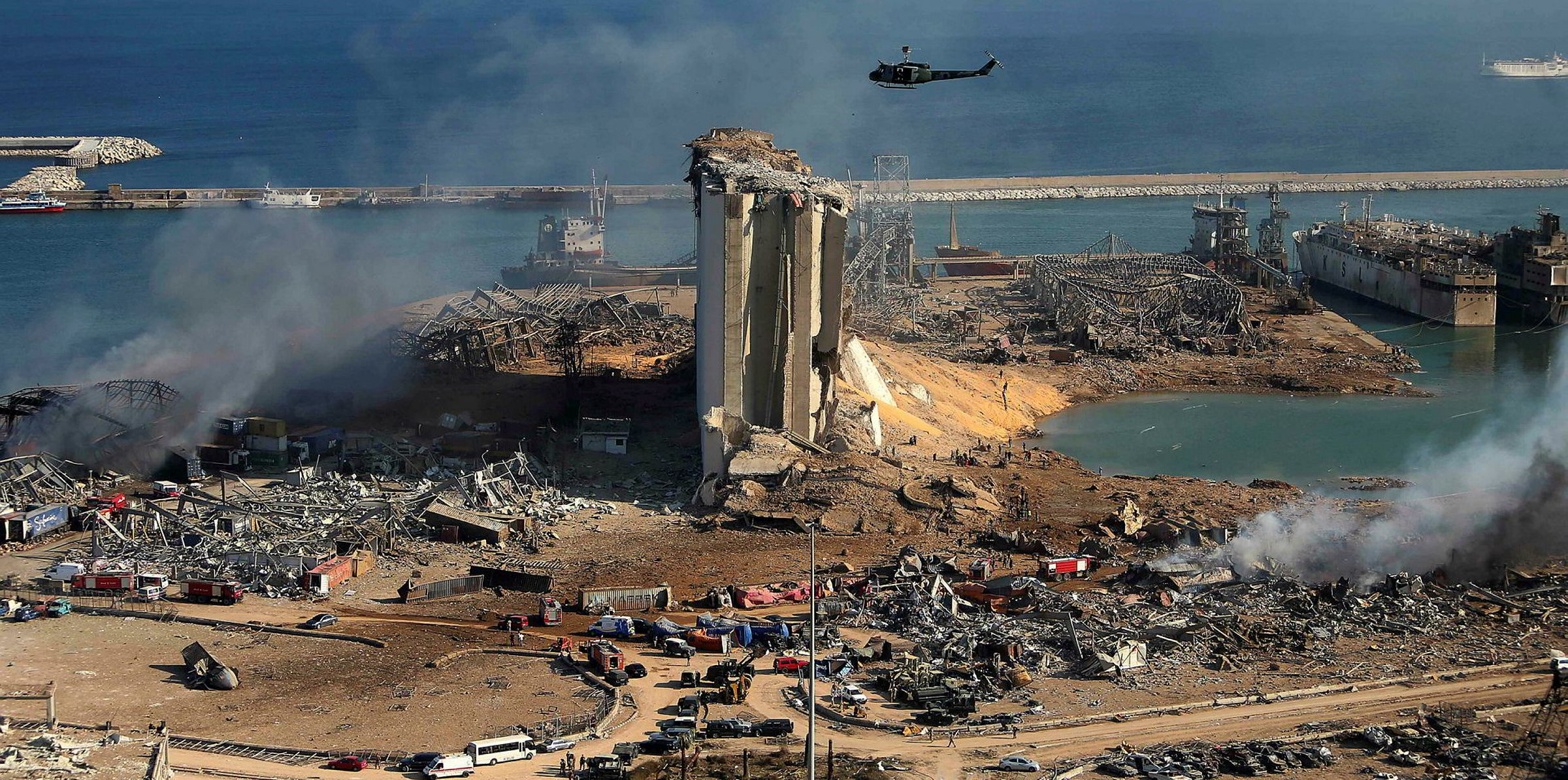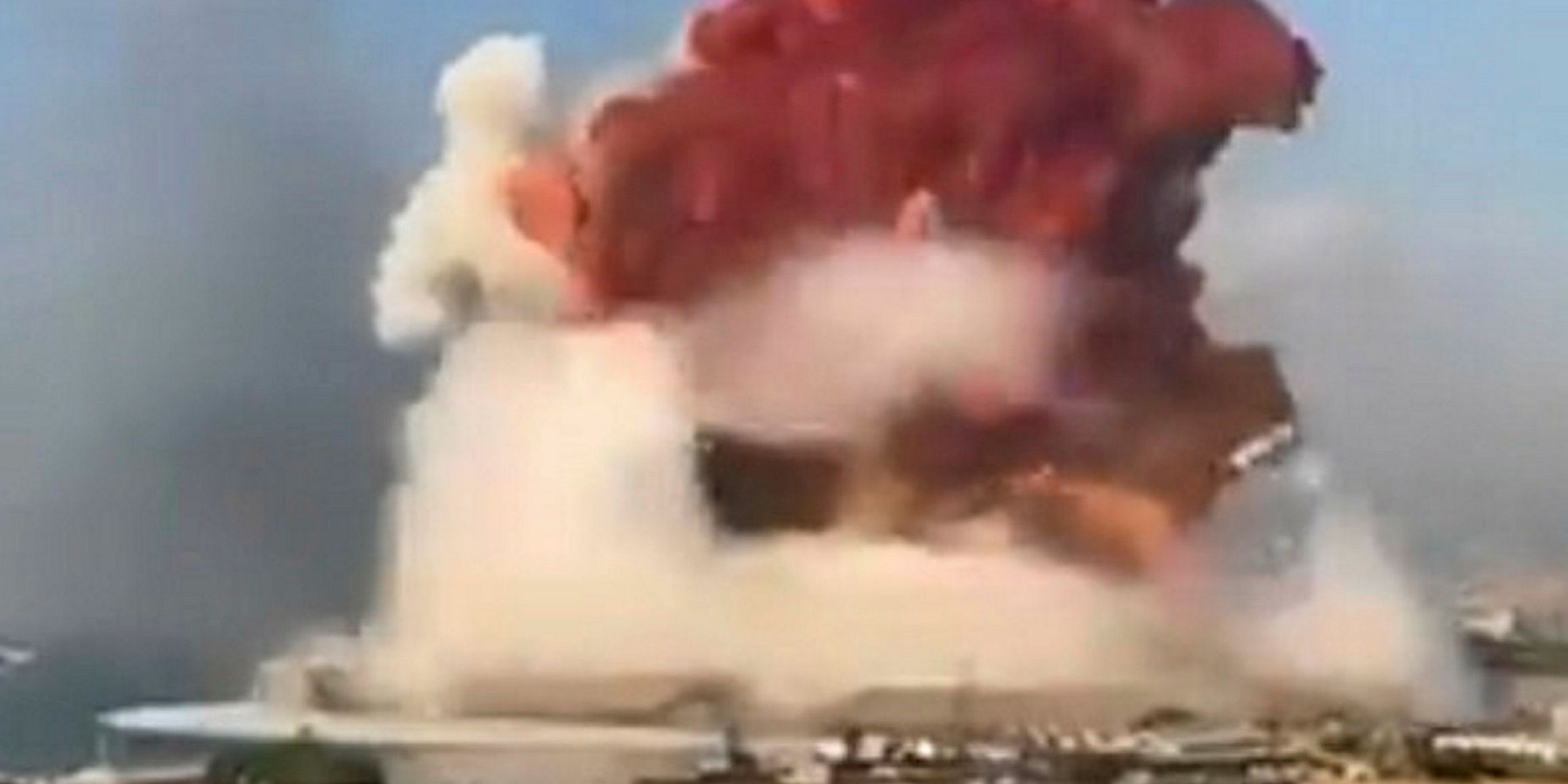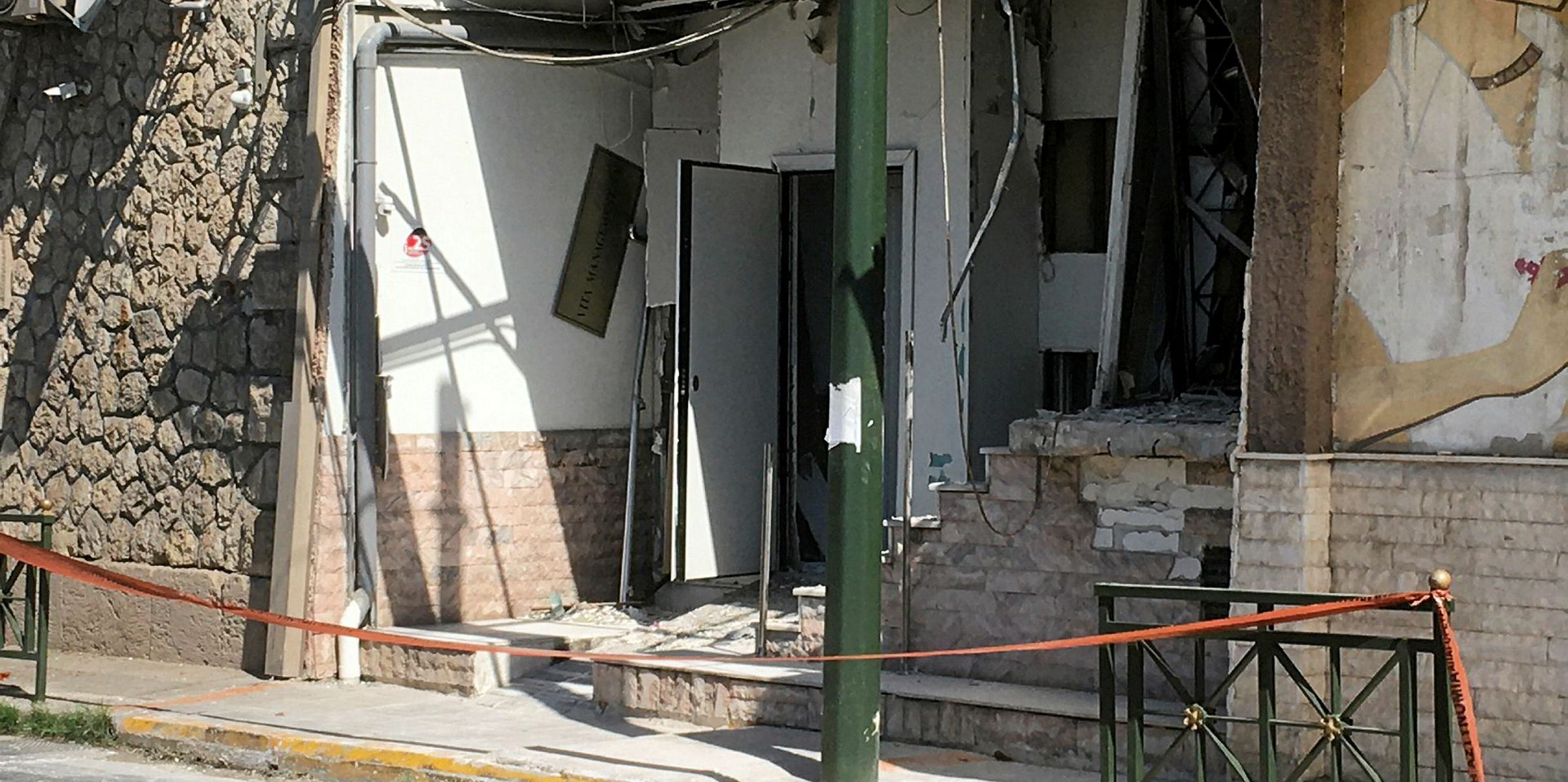Tripoli, Lebanon's second-largest port, is expected to take over cargoes that would have otherwise been handled in Beirut, following the massive explosion at the capital's port on Tuesday.
But there are doubts that Tripoli will be able to handle the influx of trade because it is currently only running at 40% capacity, a port official told Lebanon's LBCI television, cited by Bloomberg.
In a separate interview with the channel, Minister of Public Works Michel Najjar said that the country's government is assessing Tripoli's capabilities and those of other ports.
But the director of Tripoli port has told the press that the facility is ready.
"I want to reassure all Lebanese that we can receive the vessels," Ahmed Tamer said, quoted by The National.
Grain stockpiles
Questions have now turned to whether Lebanon has enough grain stockpiled for the next month.
Economy Minister Raoul Nahme told Reuters that the country has grain reserves for "a bit less than a month" because Lebanon's main silo was destroyed in the explosion.
Lebanon needs nearly three months of supply in order to have food security, but the destroyed silos only held 15,000 tonnes of the grain at the time of the blast, he told Reuters.
"There is no bread or flour crisis," the minister told the newswire. "We have enough inventory and boats on their way to cover the needs of Lebanon on the long term."
Four ships carrying 28,000 tonnes of wheat were unable to offload their cargo at Beirut, Ahmed Hatteet, the head of the wheat importers’ union told daily Arabic language newspaper Al Akhbar.
Ammonium nitrate
The Beirut explosion is thought to have been caused by the detonation of more than 2,700 tonnes of ammonium nitrate that had been stored at a warehouse at the docks after being confiscated from a ship in 2014.
Videos quickly circulated on social media showing a fire smoking at the berth, which appeared to trigger the massive blast.
Global port agency network Gulf Agency Co said the explosion has "destroyed almost everything in the port and the surrounding area up to a radius of 10km".
AIS data shows eight vessels were berthed at Beirut's Mar Mikhael dock area on Tuesday evening. The status of the vessels is currently unknown.






